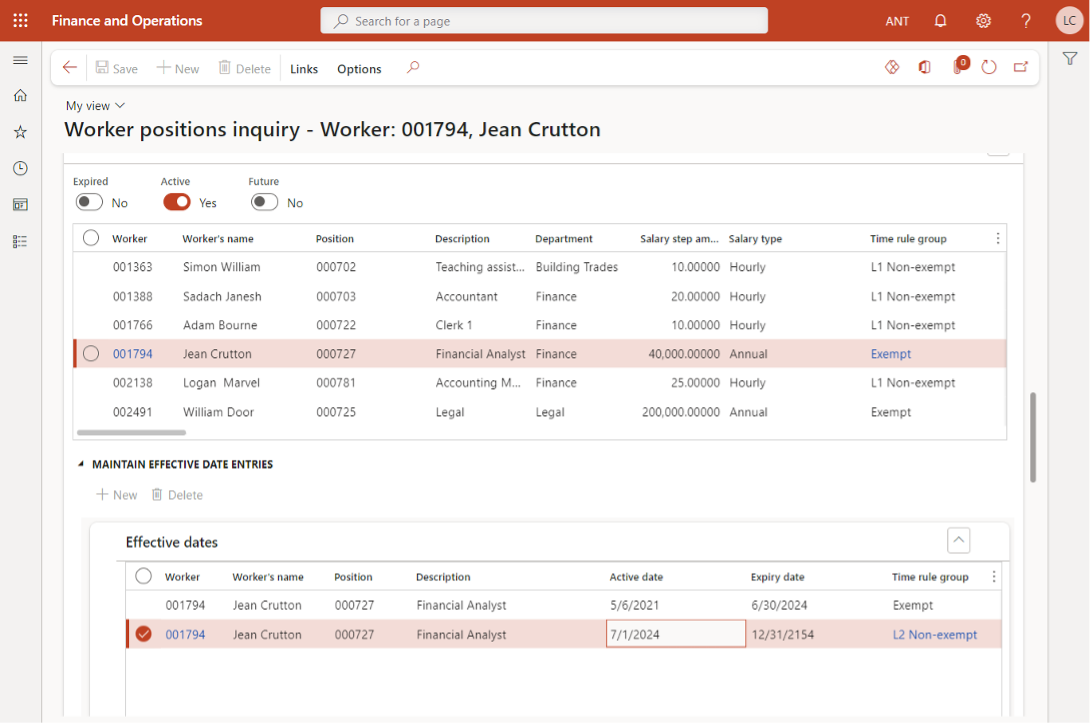
Navigating the New Overtime Rules: What Anthology Payroll and Anthology Finance & HCM Users Need to Know
The recent changes to the overtime rules, set to take effect on July 1, 2024, are poised to have a significant impact on institutions across the country, particularly colleges and universities. The U.S. Department of Labor's Final Rule, which raises the salary threshold for overtime eligibility, will require careful navigation and strategic planning. The American Council on Education’s (ACE) Peter McDonough and Steven Bloom have written an issue brief that offers in-depth explanations of the rule’s impact and practical compliance strategies.
Brief Overview of the New Overtime Rules
Under the previous regulations, campus employees were generally not eligible for overtime pay under the federal Fair Labor Standards Act unless their salary was at least $35,568 and they met the criteria for the “white-collar” exemptions. The new rule increases this salary threshold significantly:
By July 1, 2024: The salary threshold will increase to $43,888.
By January 1, 2025: The salary threshold will rise to $58,656.
In addition to these changes, the new rule mandates automatic updates to the minimum salary requirement every three years.
Impact on Colleges and Universities
The implications of these changes are profound for colleges and universities, many of which are nonprofit or public entities with limited financial flexibility. The increase in labor costs could pose considerable challenges. Institutions will need to reassess their budgets, adjust payroll systems, and ensure compliance with the new regulations to avoid potential penalties.
How Anthology Payroll and Anthology Finance & HCM Can Help
Anthology® Finance & HCM and Anthology® Payroll solutions are well equipped to assist colleges and universities in navigating these new overtime rules. Here’s how:
Comprehensive Reporting Tools: The platforms offer robust reporting tools that allow administrators to track employee salaries and identify those who will be affected by the new thresholds. This visibility is crucial for planning and budgeting purposes.
Flexible Payroll Management: With Anthology Payroll, institutions can easily review and administer the rules that determine whether and when to apply premiums like overtime to an employee’s pay, and at what rate they are paid. The system’s flexibility ensures that payroll processes remain smooth during the transition period.
Compensation Management: Anthology Finance & HCM’s rich compensation management functionality allows users to manage salary and hourly rate tiers centrally where they are shared, as well as individually, where individual contracts have been negotiated. Changes have an effective date, so they can be queued up in advance, ensuring that all calculations are in line with the new regulations. And if a change gets identified after the fact, taking effect in the past, Anthology Payroll’s retroactive pay calculation can calculate the impact of new rate, to be included in the next payment.

The new overtime rules present both challenges and opportunities for colleges and universities. By leveraging the advanced features of Anthology Payroll, institutions can navigate these changes more effectively, ensuring compliance and minimizing disruption. As the implementation dates approach, staying informed and proactive will be crucial in smoothly managing the transition.
If you are interested in learning more about how Anthology can partner with you or want to discuss our Payroll solution, get connected with us today.

Colby Horne
Colby Horne is a product marketing manager at Anthology, focused on the student information and enterprise solutions. Colby has over a decade of experience working with and for higher education institutions in various roles including integrated marketing, client success, alumni, development, and more.